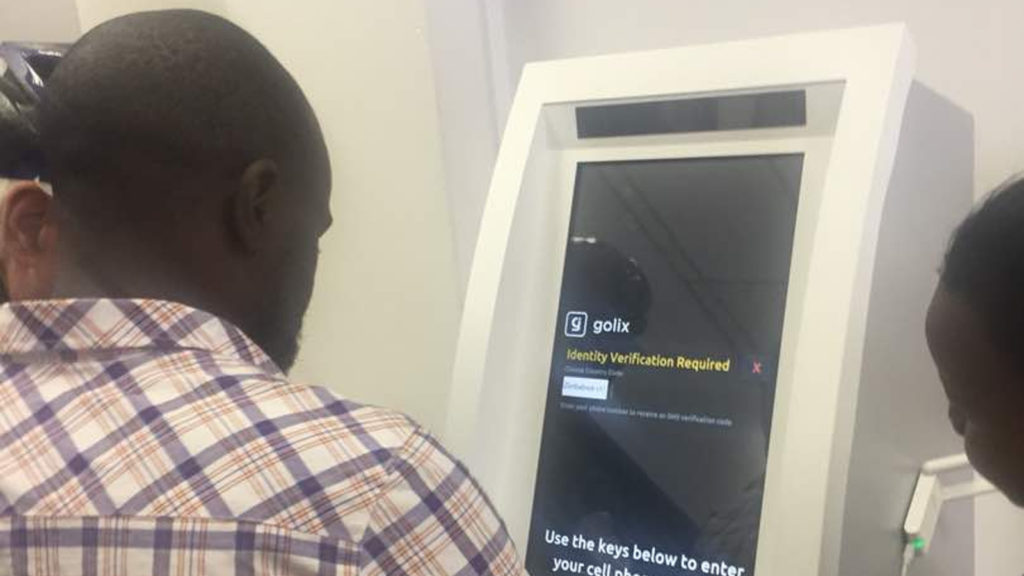AI chat is no longer just about faster answers or conversational tone. Search.com, a division of Public Good, has launched a generative AI search…
Zim crypto exchange Golix launches and activates country’s first Bitcoin ATM

Zimbabwean cryptocurrencies exchange Golix has launched and activated the country’s first ever Bitcoin ATM which will allow customers to buy and sell Bitcoin.
Golix announced the launch last week in a blog post on its website. The Bitcoin ATM will be located in the exchange’s offices in Harare.
In a recent email to Ventureburn, Golix communications director Nhlalwenhle Ngwenya said over 10 000 customers who are faced with a “slow and cumbersome” banking process for settling international payments had over the past six months “religiously” used the cryptocurrency exchange.
Customers using Golix’s Bitcoin ATM will be limited to a $5000 transaction limit
Ngwenya, who believes the number of Zimbabweans using cryptocurrency has “significantly increased” since last year, said the decision to launch the bitcoin ATM — although having been “in the pipeline for quite some time” — was a response to customer demand for a means to exchange bitcoin for hard cash.
“Some of them wanted to be able to get hard cash for their bitcoin because we were only taking virtual money for all the transactions,” he said, adding that those who had cash and wanted to carry out transactions were turning to Golix to instantly process payments — something banks are not able to guarantee.
So how does a company — in a country that has been struggling with a liquidity crisis for years — guarantee that a Bitcoin ATM will always have cash?
“The cash comes from the large demand for Bitcoin as people want to make cross-border payments, and have limited solutions and options. They have the US dollar. Our headache is making sure that the ATM doesn’t run out of cryptocurrencies!” Ngwenya explained.
He said leading up to the launch, the exchange has had to deal with high demand for cryptocurrency in the country as people want to use it to make international payments with.
“We overcame this by concentrating on our remittances channels and guaranteeing senders that their recipients can receive US dollars in Zimbabwe through the ATM. We’ve also spoken to partners to ensure that the ATM is always liquid with both fiat and crypto,” he said.
Because of Know Your Customer and Anti-Money-Laundering controls, he said, customers using the ATM will be limited to a $5000 transaction limit.
When asked whether Golix is planning on rolling out more ATMs in other locations across the country, he said the company will first monitor and assess how the ATM works as well as its acceptance by customers.
“After that assessment, we will be in an informed position on whether or not to roll out more ATMs,” he said.
Last year Reserve Bank of Zimbabwe governor John Mangudya announced in a statement that the use of and trading of cryptocurrencies is not regulated by the country’s laws, adding that virtual currencies present risks like money laundering, terrorism financing, tax evasion and fraud.
Nwenya said the exchange did not require approval from the central bank to roll out the ATM.
“The Reserve Bank of Zimbabwe does not have any legal framework related to cryptocurrencies. It nevertheless acknowledges that they are being used and has warned people who are using cryptocurrencies that they are doing so at their own risk,” Ngwenya said.
He was upbeat about what the Bitcoin ATM launch means for the use and adoption of cryptocurrencies in the country.
He said Zimbabweans will now be able to participate in the global economy again as customers can now instantly make cross border payments.
“The ATM stands more as an enlightenment towards the possibilities that blockchain technology holds. As for the economy, it means that Zimbabweans can now enjoy financial autonomy, which is now more of a stroll in the park, something which was a challenge before using cryptocurrencies,” he said.
“More so, now people can easily send money to their loved ones through cryptocurrencies fast and cheap,” he said.
Since it was launched in 2014 by CEO Tawanda Kembo and Verengai Mabika, Golix has facilitated over $10-million in transactions and generated over $300 000 in revenue, which Ngwenya said the startup is doubling every three months.


